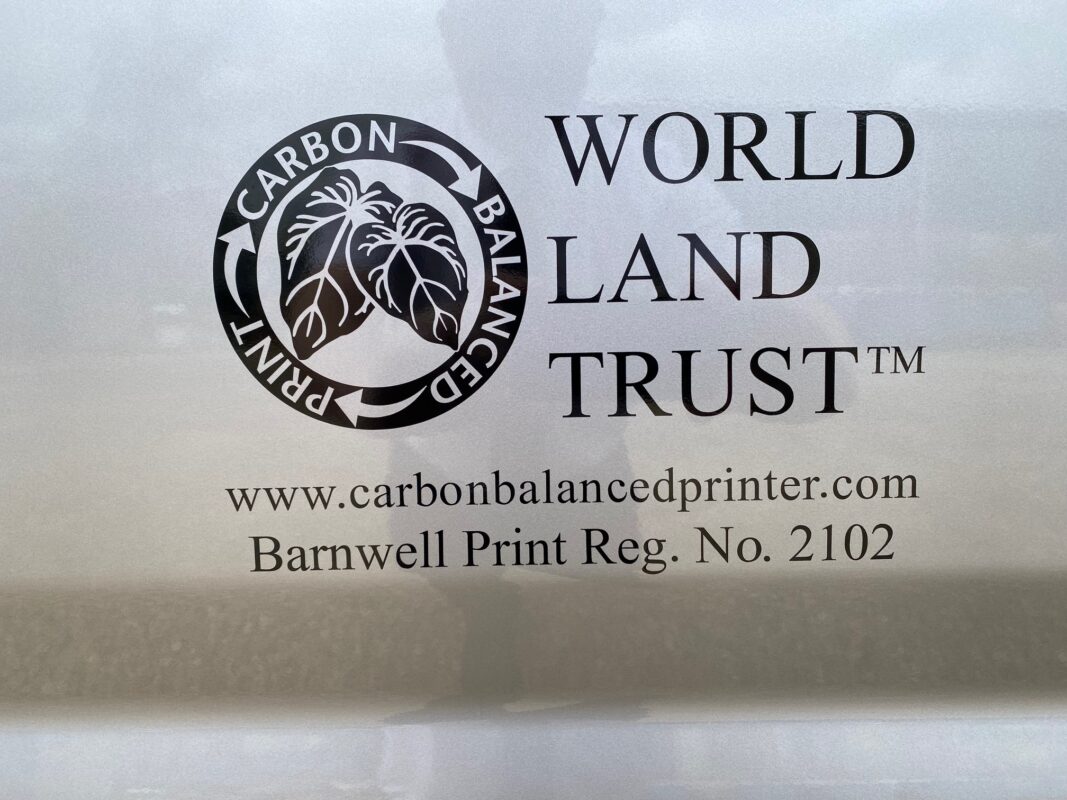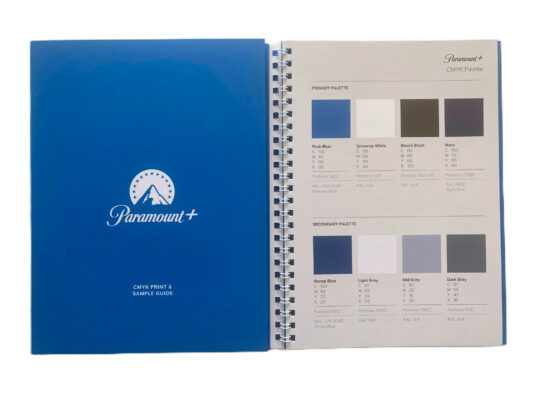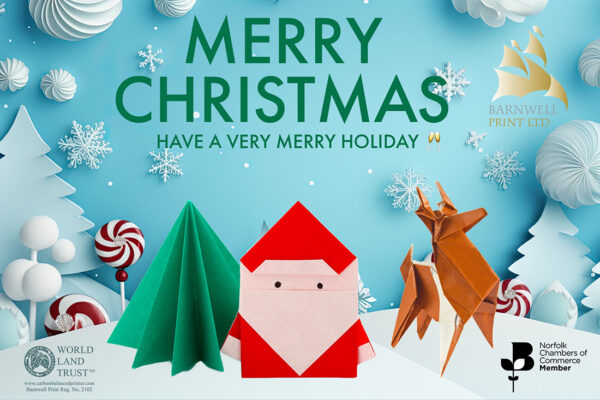Barnwell Print is committed to carbon reduction. We measure our CO2 emissions using location and market-based calculations and reduce them annually. Since 2015 we have reduced our carbon footprint by more than half from 115.58 tonnes to 48.28 tonnes per year 2023. The average SME CO2 per employee is 4.7tonnes and Barnwell’s is operating at 2.68tonnes. Both are epic achievements we are extremely proud to report. Verified by Carbonco and the World Land Trust.
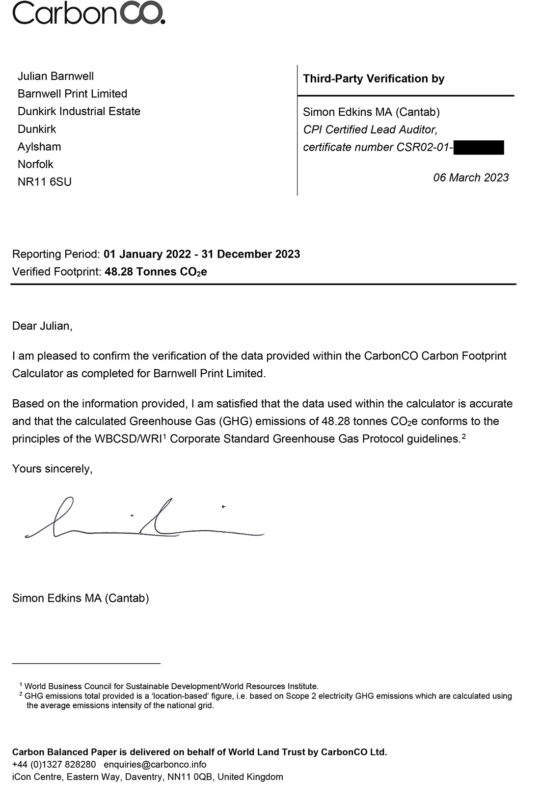
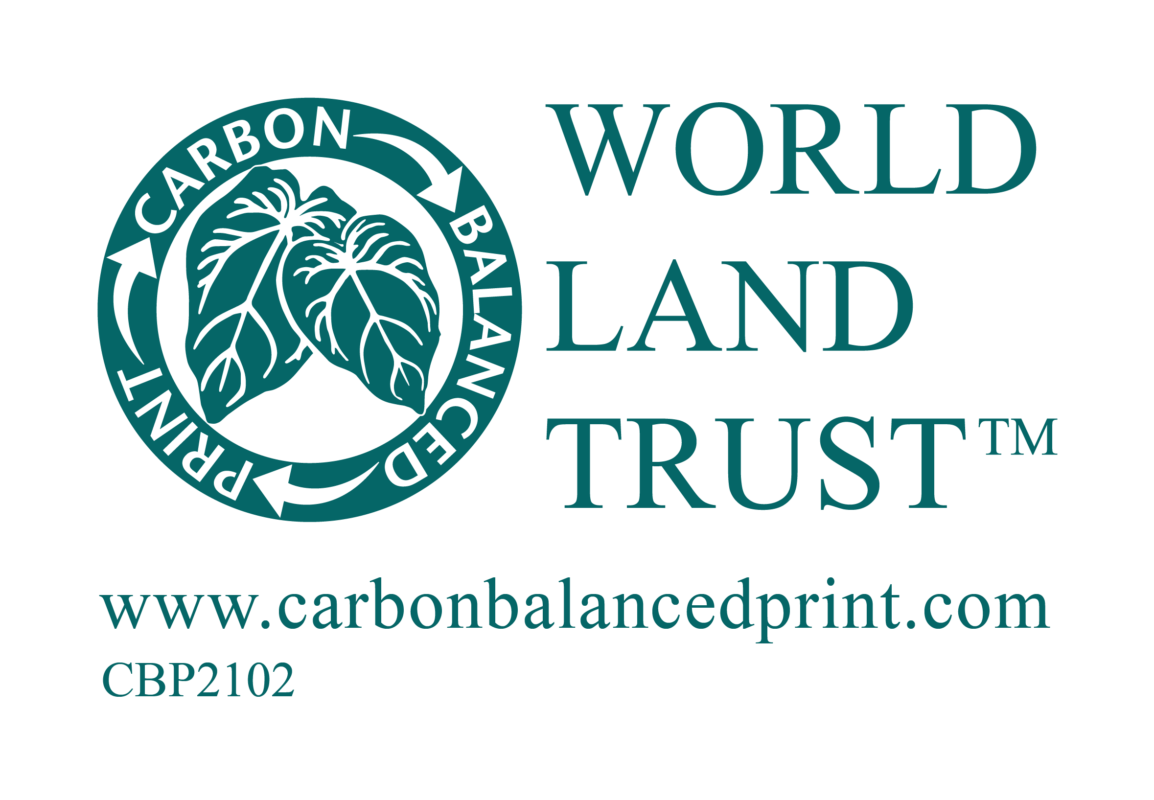
Norfolk’s First Certified Carbon Balanced Publication Printer since 2012
I am pleased to confirm the verification of the data provided within the CarbonCO Carbon Footprint Calculator as completed for Barnwell Print Limited.
Based on the information provided, I am satisfied that the data used within the calculator is accurate and that the calculated Greenhouse Gas (GHG) emissions of 48.28 tonnes CO2e conforms to the principles of the WBCSD/WRI1 Corporate Standard Greenhouse Gas Protocol guidelines.2.
This covers the business’s primary energy consumption and vehicle impacts and uses the 2022 conversion factors published by DEFRA.
CarbonCO and World Land Trust would like to thank Barnwell Print Ltd for your continued support of the Carbon Balanced Print and Paper programme.
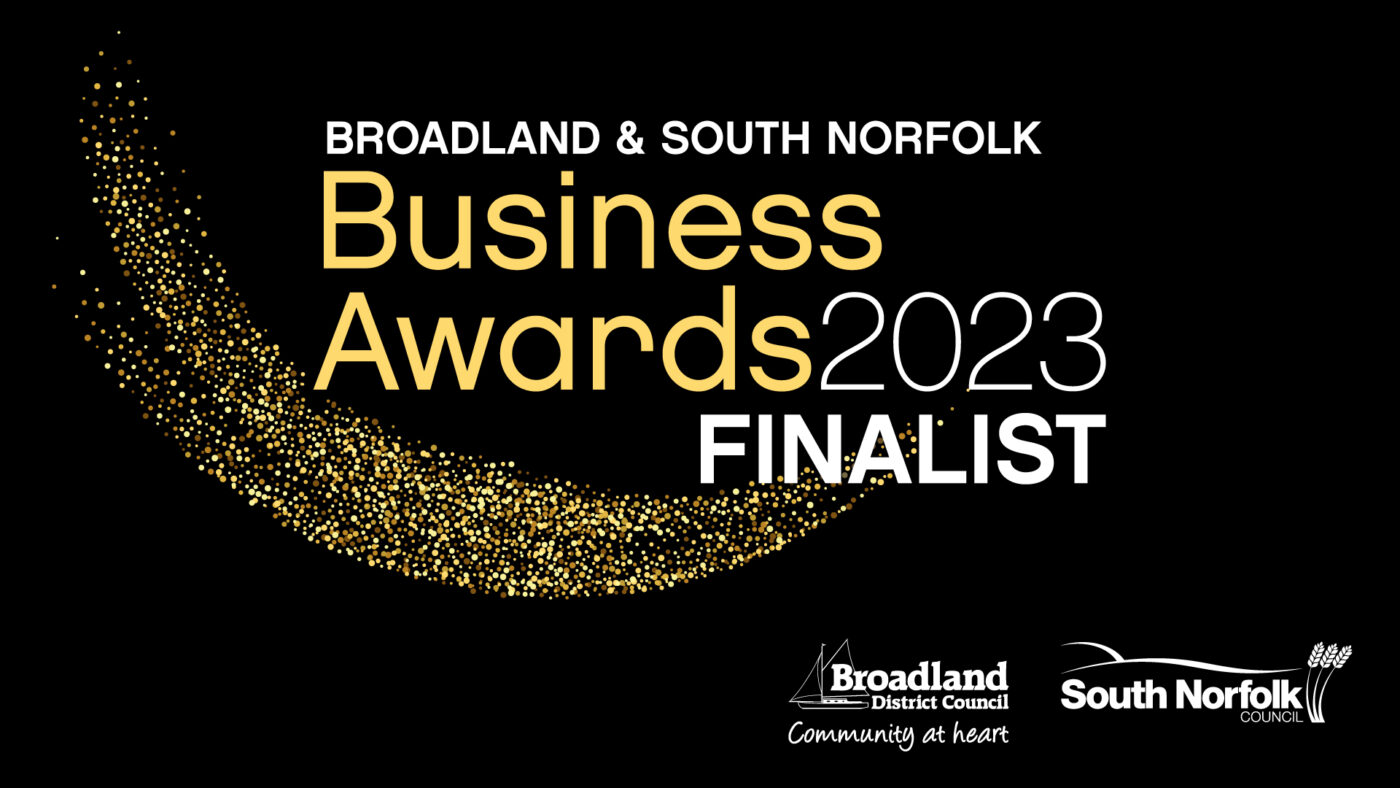
WHO ARE WORLD LAND TRUST?
World Land Trust (WLT) is an international conservation charity that protects the world’s most biologically significant and threatened habitats acre by acre.
Through a network of partner organisations around the world, WLT funds the creation of reserves and provides permanent protection for habitats and wildlife. Partnerships are developed with established and highly respected local organisations who engage support and commitment among the local community.
WHAT IS CARBON BALANCED OFFSETTING?
World Land Trust implements high-quality REDD+ projects through the Carbon Balanced Programme, which allows organisations to offset their unavoidable emissions through the protection and restoration of tropical habitats.
REDD can describe the processes of reducing Green House Gas (GHG) emissions released by deforestation and forest degradation (i.e. protecting standing forest, also known avoided deforestation and degradation).
HOW DOES CARBON BALANCED CONTRIBUTE TO CONSERVATION?
Terrestrial habitats, such as forests, grasslands and wet peatlands, contain large volumes of carbon in their biomass and soils. However, these habitats are being destroyed or degraded at an unprecedented rate, releasing stored carbon into the atmosphere and contributing to between 10 and 20 per cent of global GHG emissions.
The Carbon Balanced programme offsets emissions by protecting threatened habitats that would otherwise have been lost, avoiding the release of stored carbon. This also enables the regeneration of degraded habitats, which gradually re-absorb atmospheric CO2. In a warmer climate, it is predicted that tropical ecosystems will be able to store less carbon than they do now, so urgent action is required.


